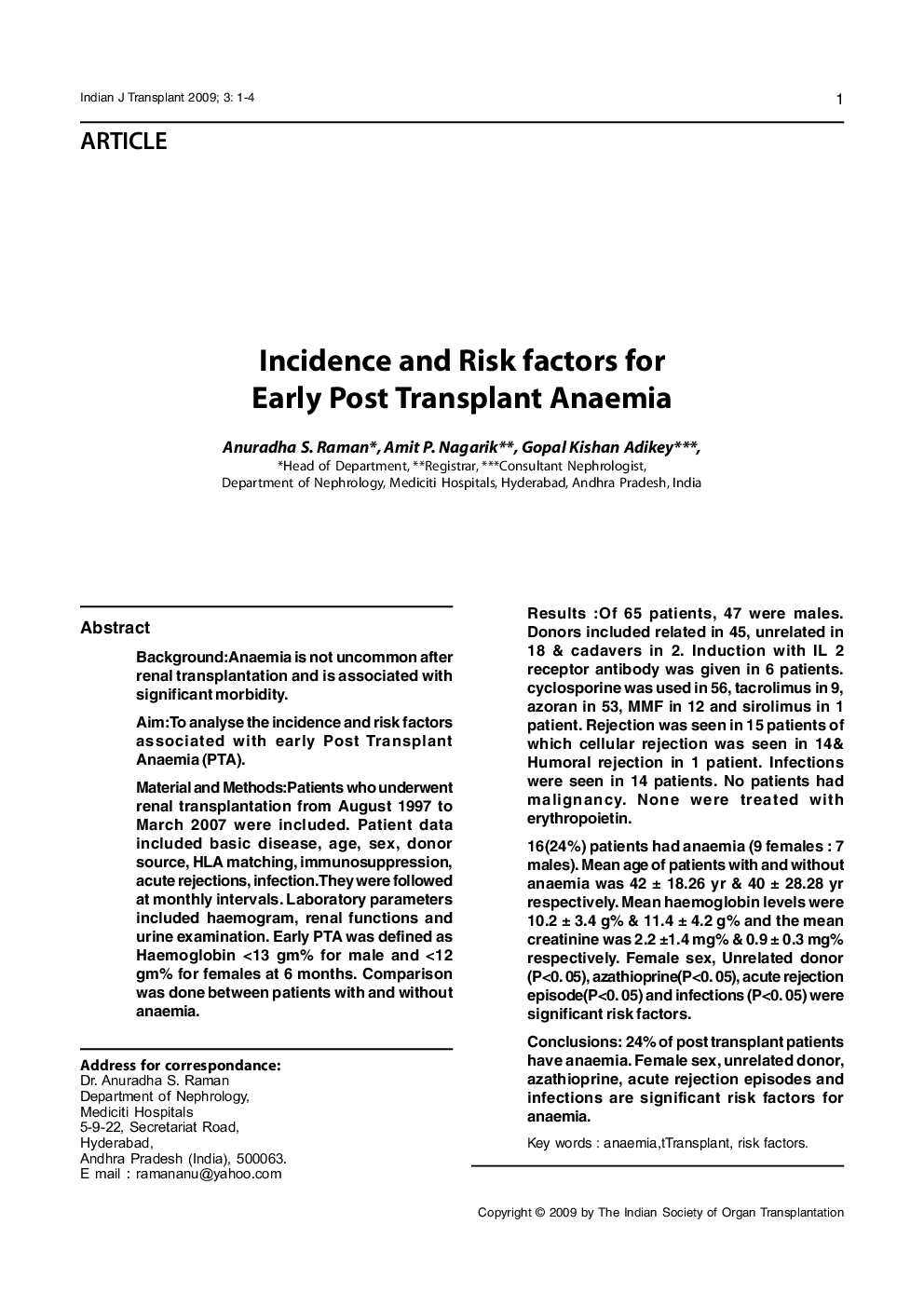| Article ID | Journal | Published Year | Pages | File Type |
|---|---|---|---|---|
| 3338396 | Indian Journal of Transplantation | 2009 | 4 Pages |
BackgroundAnaemia is not uncommon after renal transplantation and is associated with significant morbidity.AimTo analyse the incidence and risk factors associated with early Post Transplant Anaemia (PTA).Material and MethodsPatients who underwent renal transplantation from August 1997 to March 2007 were included. Patient data included basic disease, age, sex, donor source, HLA matching, immunosuppression, acute rejections, infection. They were followed at monthly intervals. Laboratory parameters included haemogram, renal functions and urine examination. Early PTA was defined as Haemoglobin <13 gm% for male and <12 gm% for females at 6 months. Comparison was done between patients with and without anaemia.ResultsOf 65 patients, 47 were males. Donors included related in 45, unrelated in 18 & cadavers in 2. Induction with IL 2 receptor antibody was given in 6 patients. cyclosporine was used in 56, tacrolimus in 9, azoran in 53, MMF in 12 and sirolimus in 1 patient. Rejection was seen in 15 patients of which cellular rejection was seen in 14& Humoral rejection in 1 patient. Infections were seen in 14 patients. No patients had malignancy. None were treated with erythropoietin.16(24%) patients had anaemia (9 females : 7 males). Mean age of patients with and without anaemia was 42 ± 18.26 yr & 40 ± 28.28 yr respectively. Mean haemoglobin levels were 10.2 ± 3.4 g% & 11.4 ± 4.2 g% and the mean creatinine was 2.2 ±1.4 mg% & 0.9 ± 0.3 mg% respectively. Female sex, Unrelated donor (P<0. 05), azathioprine(P<0. 05), acute rejection episode(P<0. 05) and infections (P<0. 05) were significant risk factors.Conclusions24% of post transplant patients have anaemia. Female sex, unrelated donor, azathioprine, acute rejection episodes and infections are significant risk factors for anaemia.
